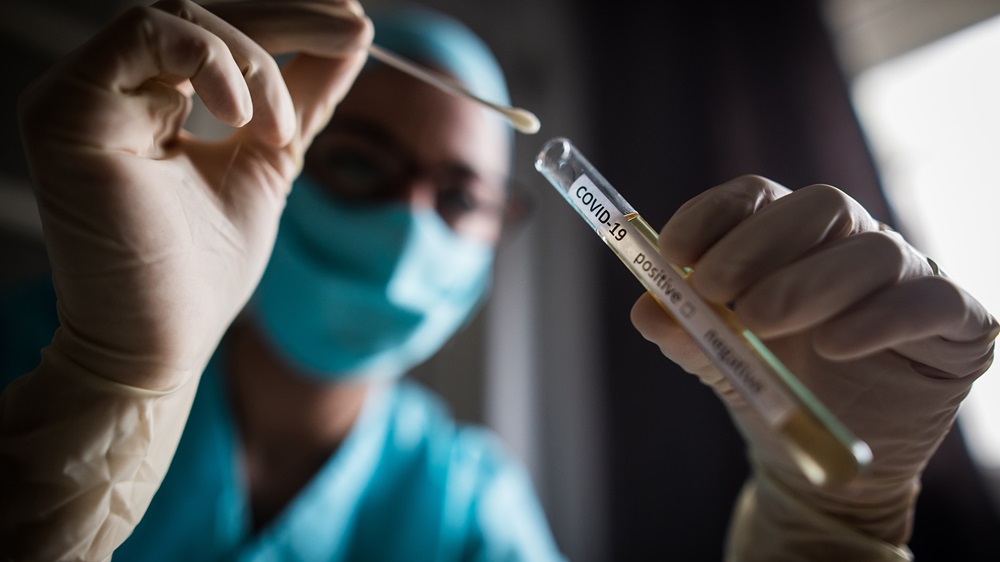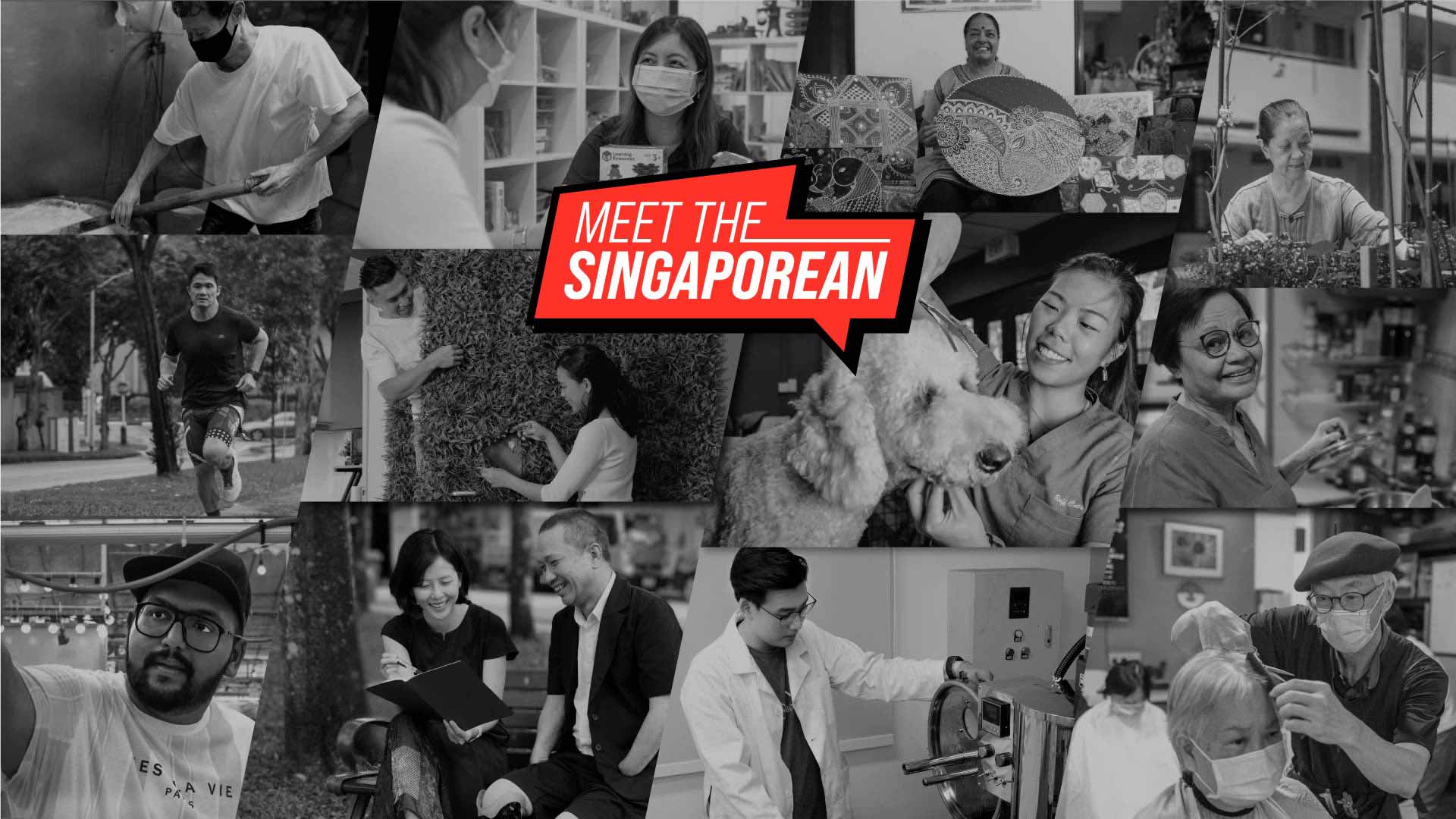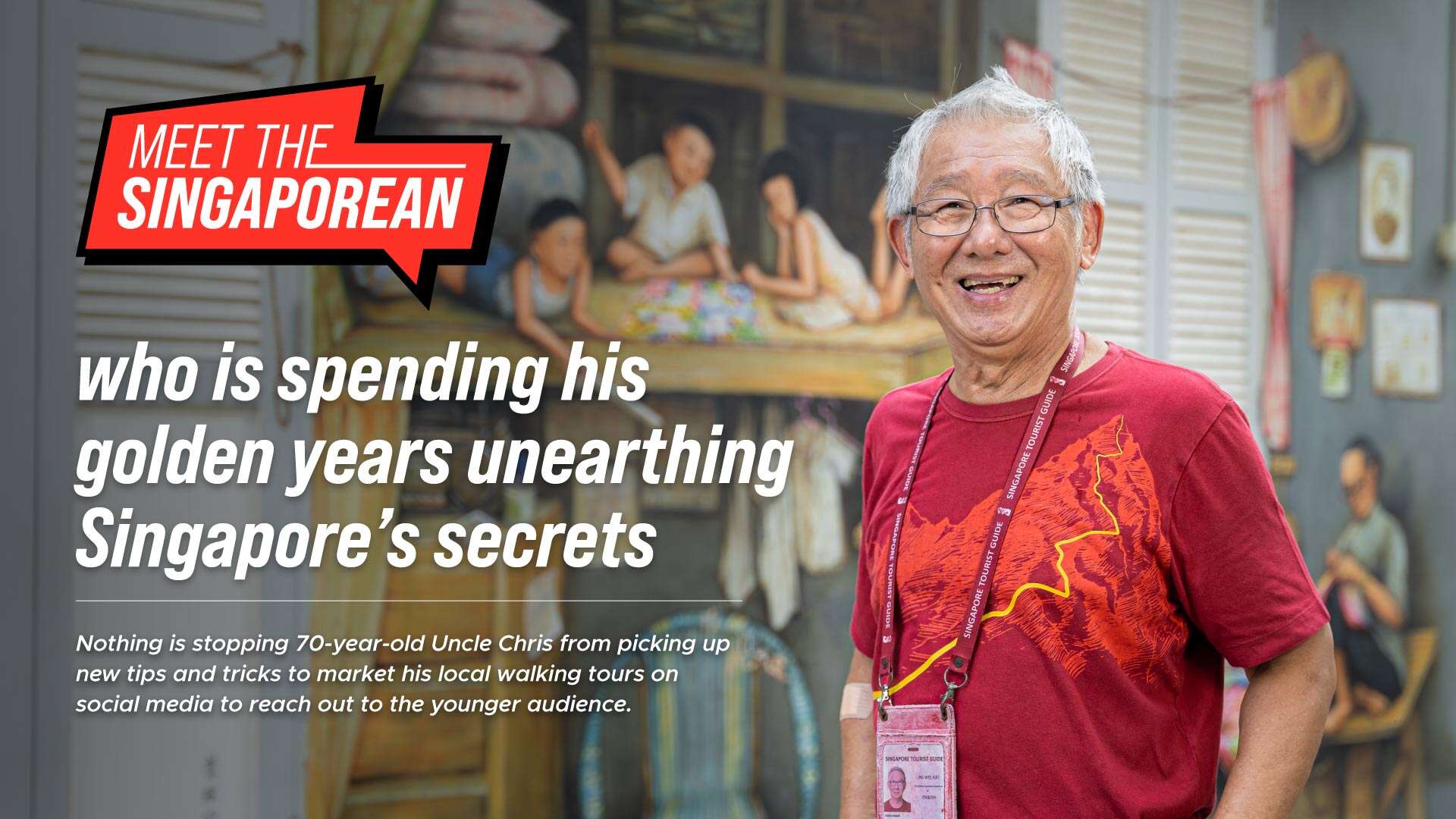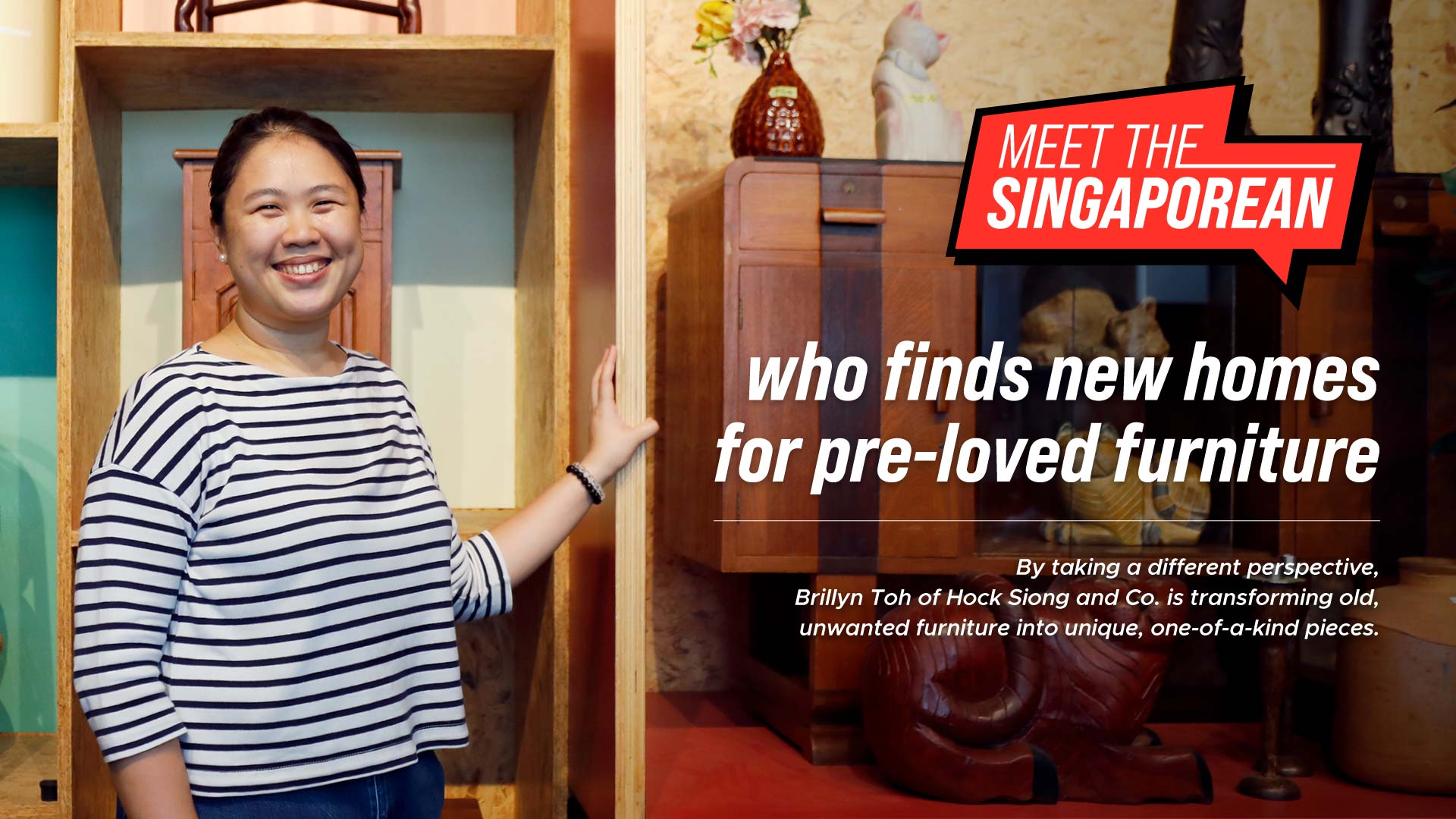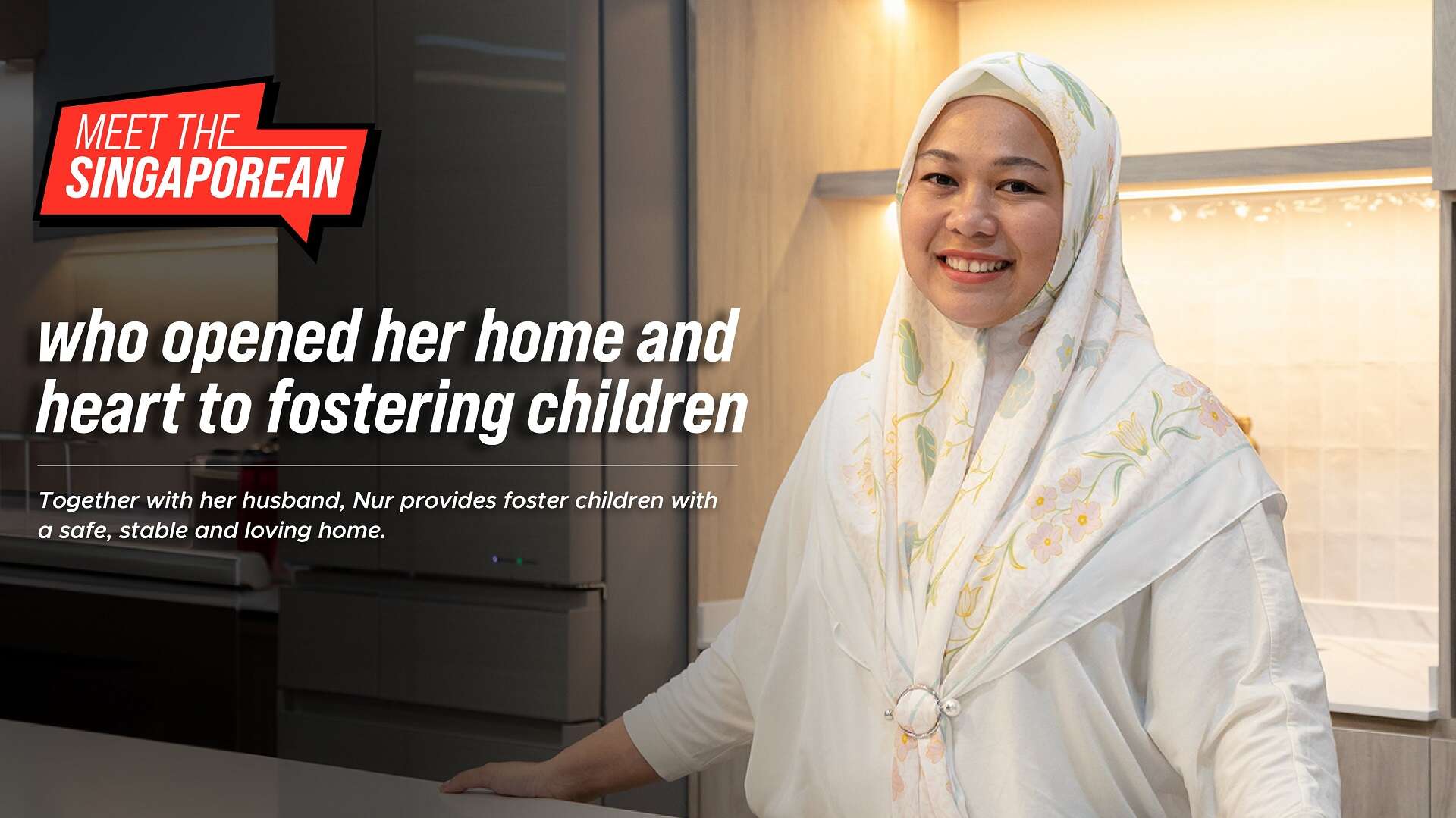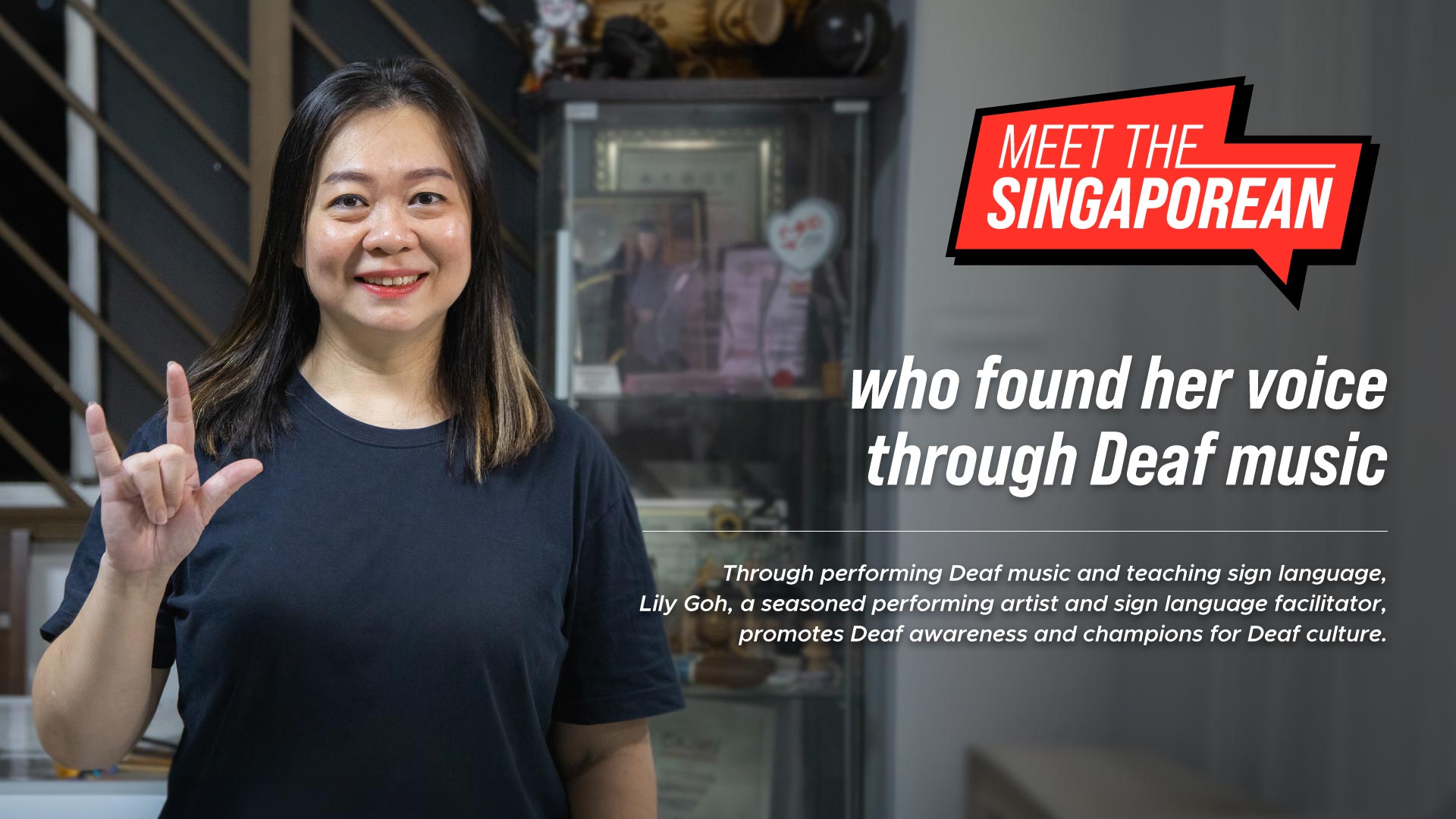
Meet the Singaporean - Christopher Leow
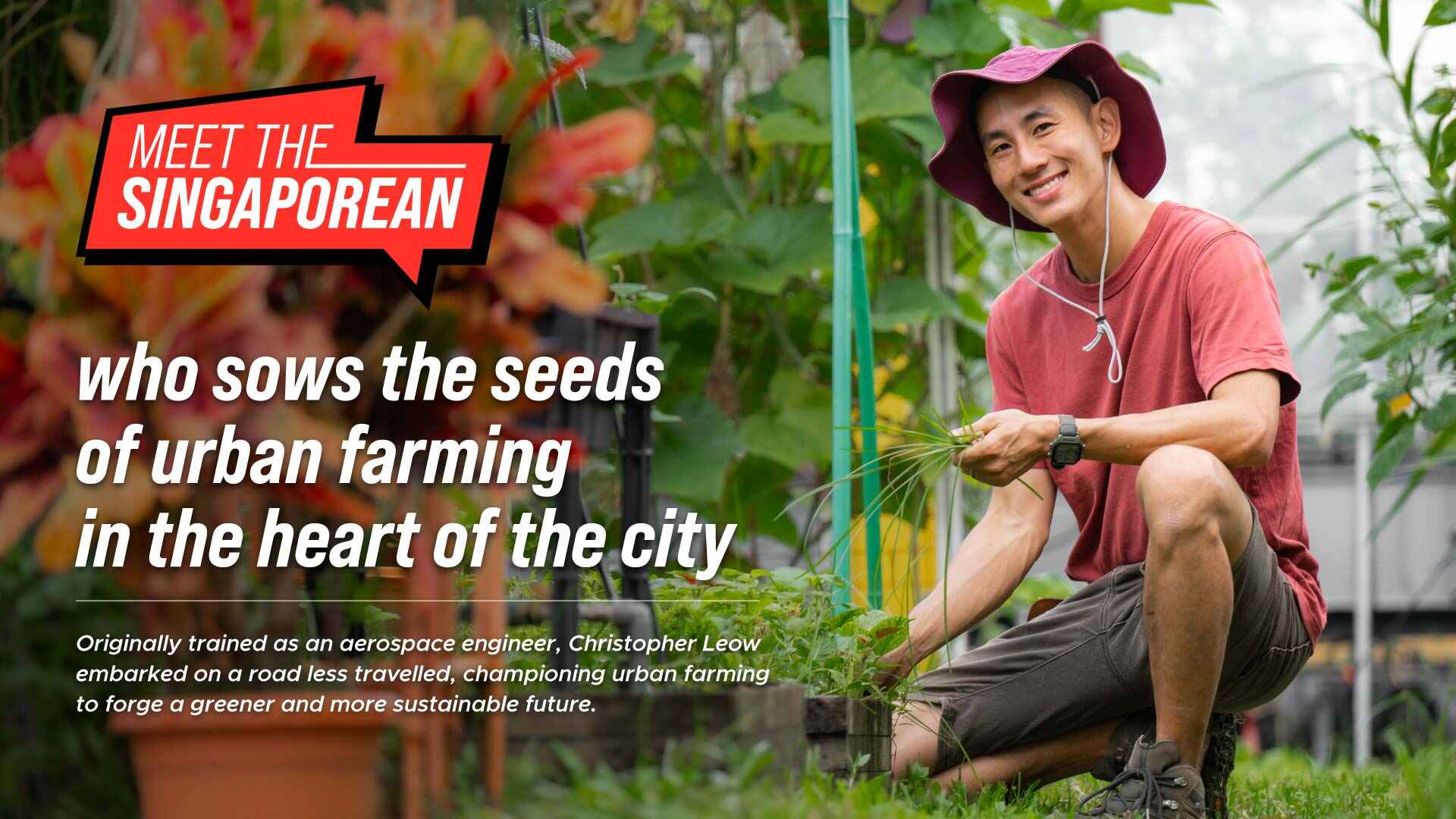
A love for food, a passion to work with his hands, a deep connection to nature, and a series of unexpected turns have led Christopher Leow to his true calling of being an urban farmer 10 years ago.
During his trip to the New South Wales, Australia, in 2013, Christopher stumbled upon a self-sufficient farm, where he lived off the grid for 3 months. “The experience was eye-opening. I discovered people who have established a strong connection to their food source in this farm. These farmers became my mentors. They helped me understand the value of growing food sustainably, and how we are able to cultivate food for our well-being with our own hands. I was thoroughly impressed with how good the farm produce tasted,” Christopher says.
After returning to Singapore, Christopher began exploring opportunities in urban farming. With the sector barely taken flight at the time, and the lack of formal training, Christopher found himself starting from scratch. Wanting to gain experience to fuel his passion for sustainable food production, he volunteered with local farming initiatives, and experimented with the use of unconventional spaces like rooftops of multi-storey carparks to grow local produce.
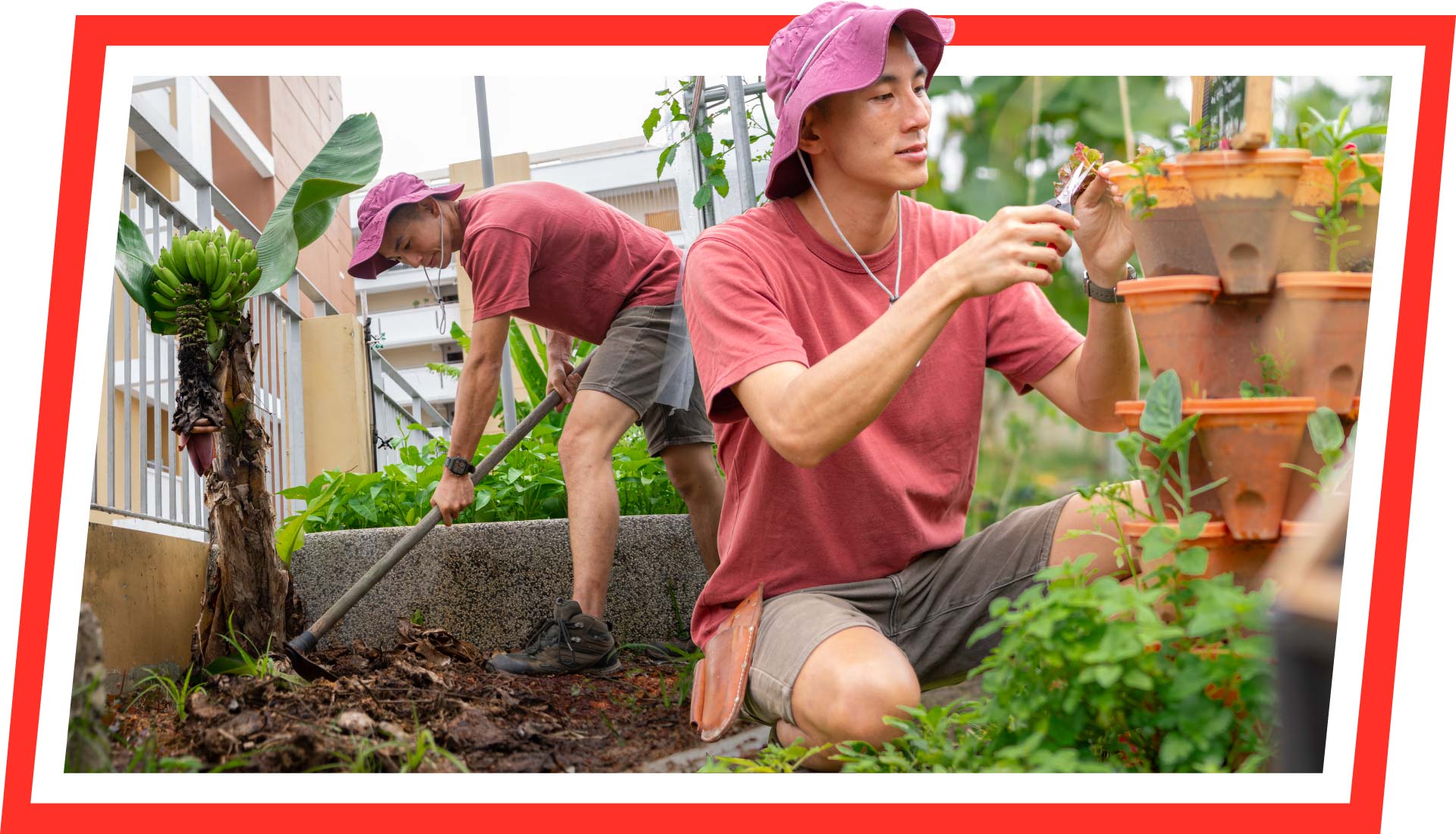
(Christopher tending to the rooftop garden at Nutopia Community Garden. / Photo by Maven Potter)
His ad-hoc involvement as an urban farmer turned into a full-time career when he received a formal job offer in 2016. He went on to create micro farms around obscure locations in Singapore such as inside a shipping container placed under the West Coast Highway viaduct.
Sustainable Impacts
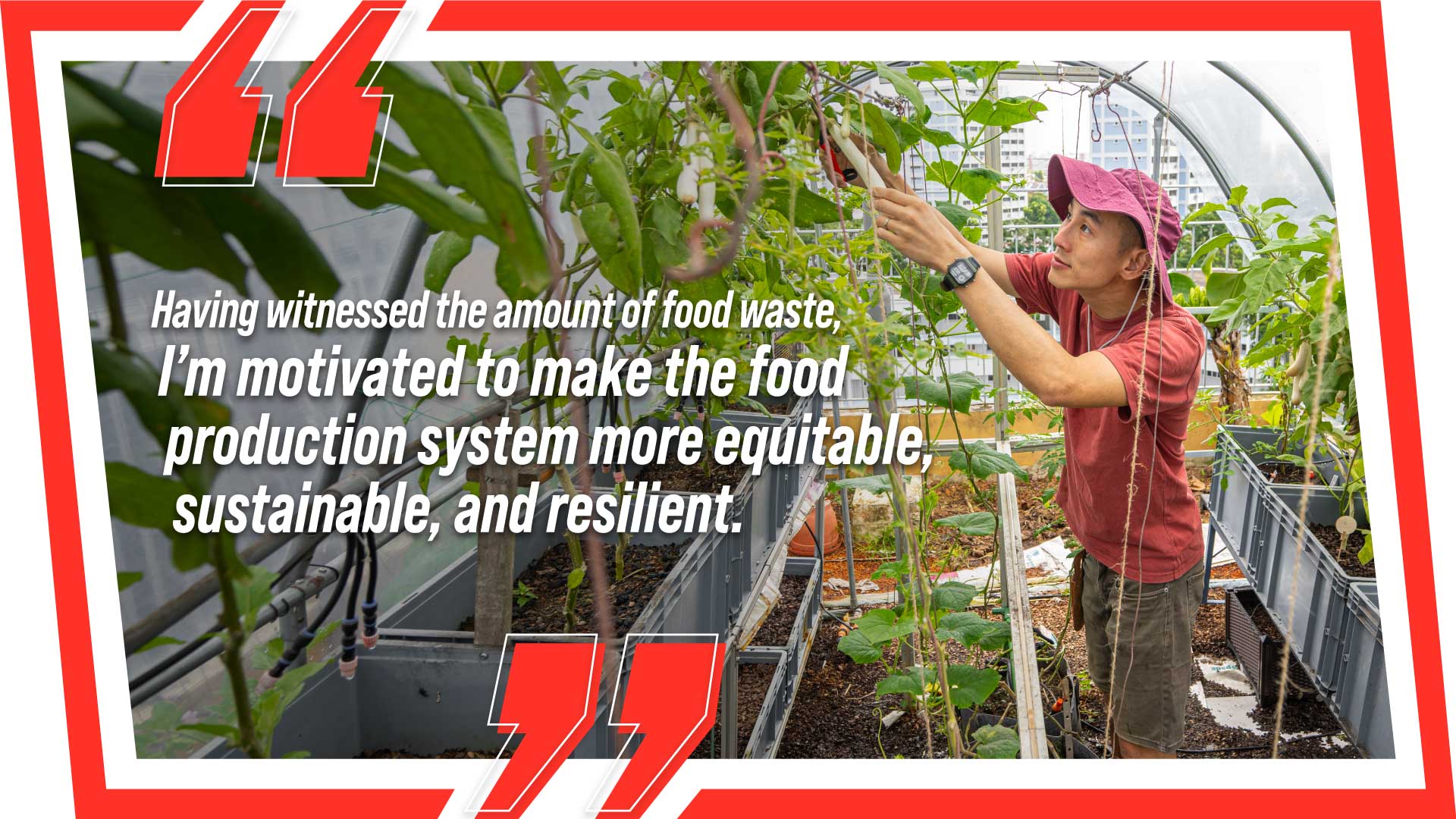
(Photo by Maven Potter)
With urban farming at its nascent stage, Christopher upskilled himself through learning extensively on the job and taking up online courses. He also visits farms in different parts of the world and learns from the experiences of others. “Being trained as an engineer helps me apply a system thinking approach to finding solutions. Having worked through the entire food value chain of ‘farm to table’’ and witnessing the amount of food waste in food businesses, I’m motivated to make the food production system more equitable, sustainable, and resilient,” he says.
For Christopher, the development of vertical farms and community gardens not only produces food, but also brings people together, educates the community, and creates a shared responsibility towards a sustainable food system. He explains, “Each small farm in a community adds up to a significant change. Stakeholders of the community can contribute to designing the farm, growing the plants collaboratively, and enjoying the harvest together. This instills a sense of ownership and get people to appreciate the whole journey of farming.”
In the wake of the pandemic with heightened awareness for the importance of food security, Christopher’s efforts took on a new significance. He believes that the implementation of decentralised farms in the community, as opposed to sole reliance on large agricultural operations can help promote self-sufficiency. “As Singapore works towards its ‘30 by 30’ plan to build up our capability to produce 30% of our food needs by 2030, the need to enhance food security becomes more apparent. We can all play a part in growing good quality produce through the use of under-utilised spaces in land-scarce Singapore, and reduce our dependence on food imports,” he elaborates.
Education and Empowerment
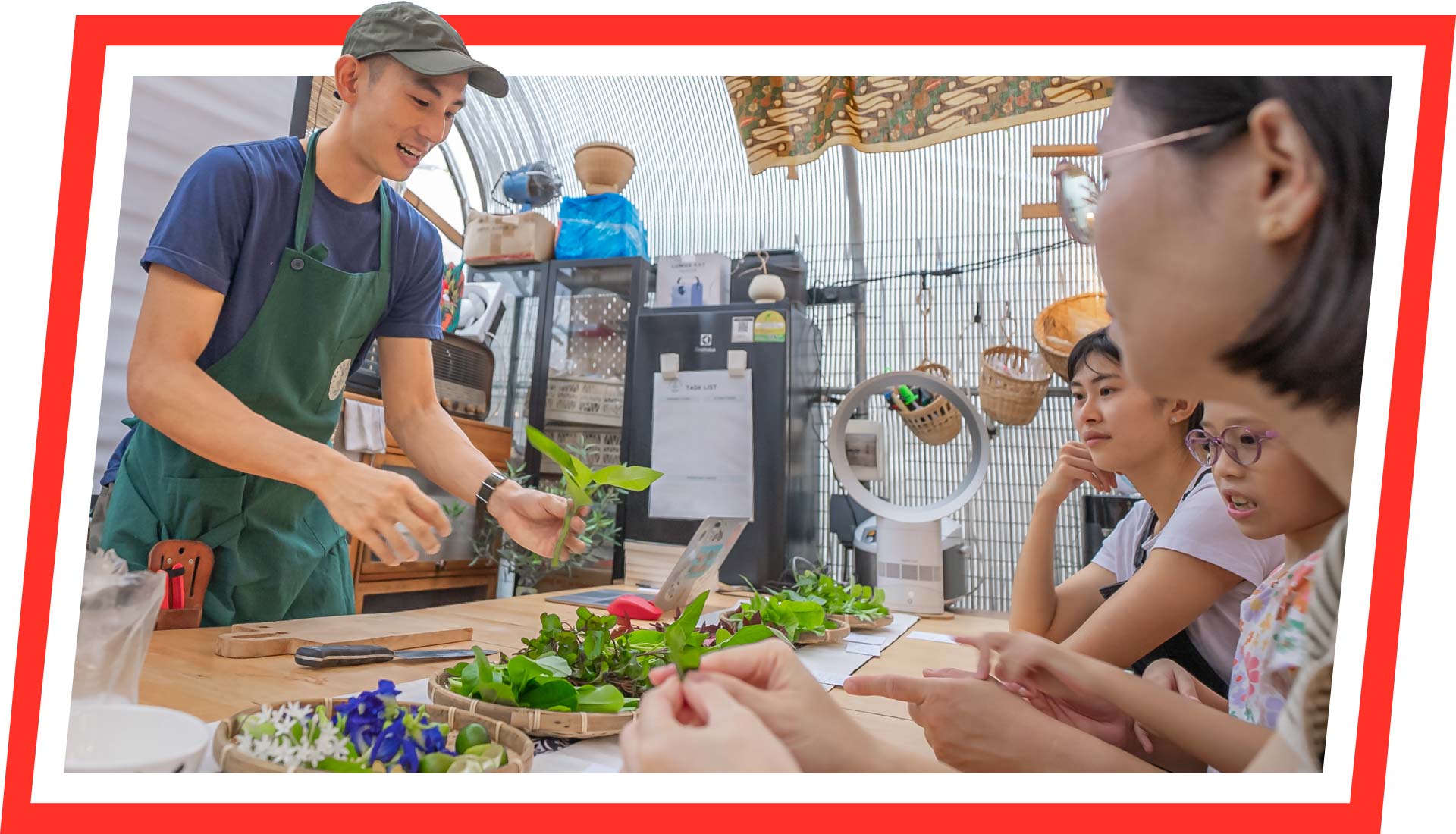
(Christopher conducting a workshop to educate participants on growing vegetables and edible greens native to Singapore such as roselle and butterfly blue pea. / Photo by Maven Potter)
Driven by his passion in sharing knowledge and skills in sustainable food production, Christopher recently founded ‘The Freestyle Farmer’, an urban farming consultancy, with a mission ‘to inspire and empower people to grow food’. He also shares his urban farming insights at conferences and seminars overseas, and is an adjunct lecturer at a local polytechnic teaching the urban agricultural technology programme.
For taking an unconventional path that was initially met with skepticism, Christopher was encouraged by how his quest for ‘better food’ has turned out. He notes a significant change on how urban farming is perceived today, “When I tell others I am an urban farmer now, I get a completely different response as compared to 10 years ago. They would say the likes of ‘It’s great that you are doing this. It’s an important job!’”
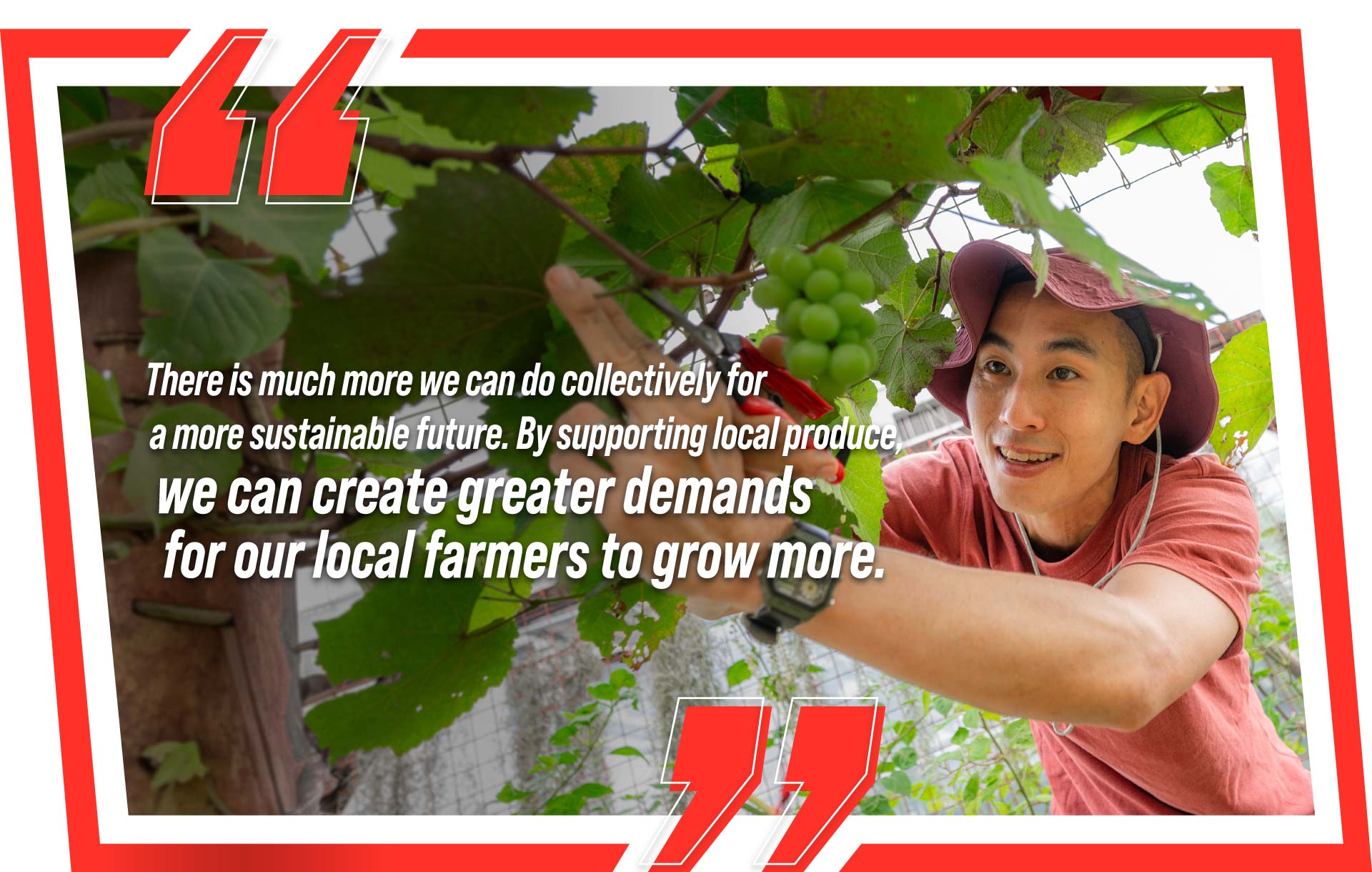 (Photo by Maven Potter)
(Photo by Maven Potter)
Reflecting on the journey, Christopher is excited over the possibilities of Singapore’s burgeoning urban farming sector, which has seen much progress as evident from the success stories of good quality local produce in recent years: “While Singapore’s urban farming has grown a lot, there is much more we can do collectively for a more sustainable future. By supporting local produce, we can create greater demands for our local farmers to grow more.”
Christopher Leow, 37
Founder of The Freestyle Farmer – an urban farming consultancy
We use cookies to tailor your browsing experience. By continuing to use Gov.sg, you accept our use of cookies. To decline cookies at any time, you may adjust your browser settings. Find out more about your cookie preferences here .









![[Updated] Limitations on In-Person Visits to Hospitals and Residential Care Homes](/images/default-source/media/gov/201121_in-person_visits.jpeg?Status=Master&sfvrsn=a948042_0;mw=1000&hash=AEBFFAB60CB60B4BFD8B18367921A5EE)
